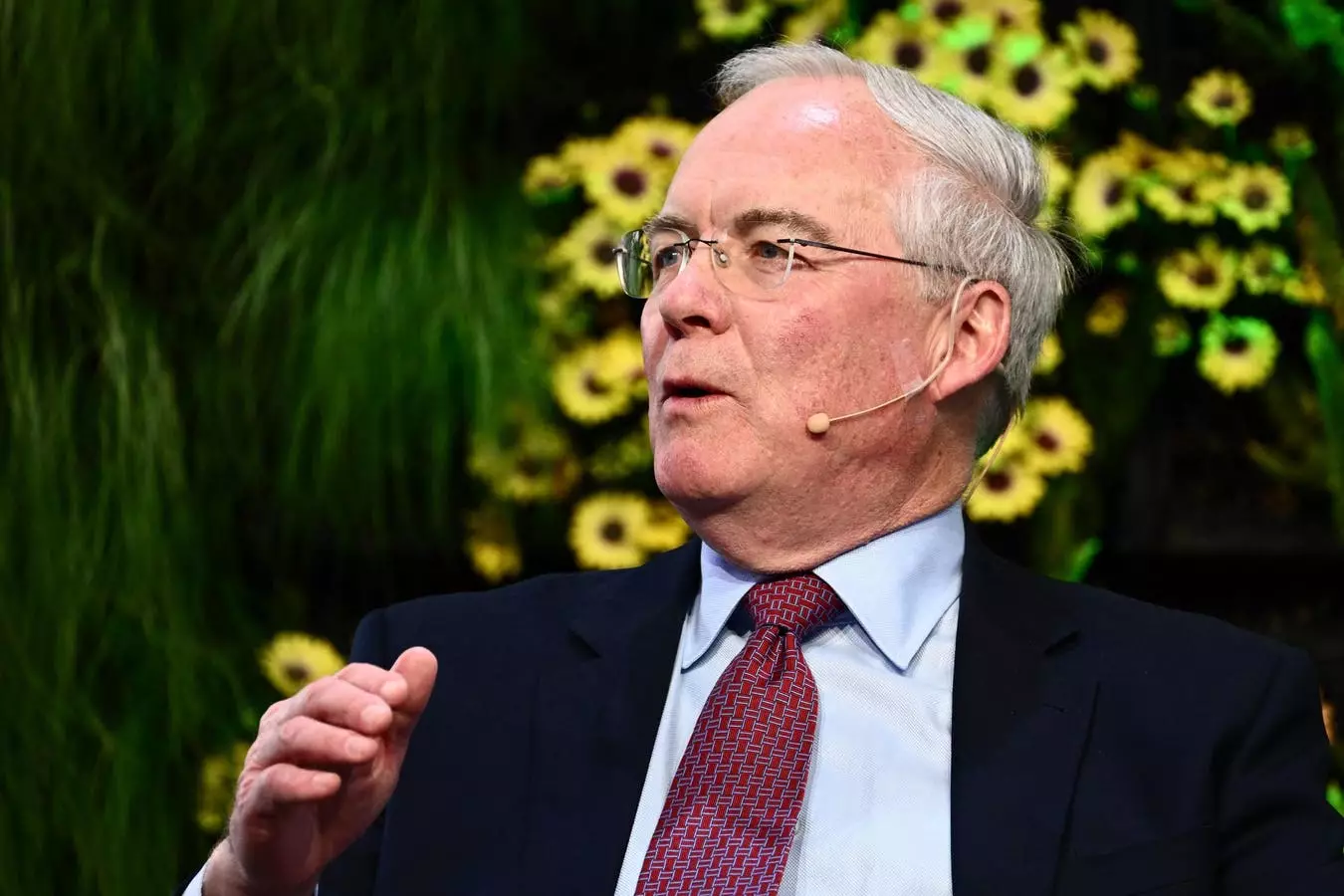The unexpected departure of Rodney McMullen as CEO of Kroger marks a crucial turning point in the grocery retail realm. Having led the company since 2014, McMullen crafted a vision that expanded Kroger’s digital capacities and solidified its market position, but his resignation unveils deeper concerns about the company’s resilience in the face of mounting challenges.
The Circumstances of Departure
McMullen’s resignation comes against a backdrop of controversy. An independent investigation into his personal conduct has raised eyebrows and skepticism among stakeholders, though it’s critical to note that this investigation did not pertain to financial performance or operational structure. The detachment between personal ethics and corporate performance is a subtle reminder of the intricate web of leadership in large corporations. While Kroger’s board assured that these issues did not reflect any financial malaise, the timing is suspicious, especially considering the ongoing struggles in the grocery market.
McMullen’s exit, reportedly underlined by a loss of unvested equity and restricted from receiving a 2024 bonus, reveals the precarious balance leaders must maintain in their corporate conduct. No matter how high they climb, a misstep can sever the very ties that connect them to their roles, reinforcing a culture of accountability—even at the top echelons of management.
The Timing and Implications
This moment is particularly precarious as Kroger warrants vigilance amidst looming threats—a failed merger with Albertsons is currently embroiled in legal complexities that may reshape the industry’s competitive landscape. McMullen’s presence was as much a strategic asset as a cyclical necessity; his absence raises valid concerns about Kroger’s ability to adapt and compete in a polarizing market. His familiarity with the intricacies of the merger likely positioned him as a pivotal player in court, and now, that gap can create vulnerabilities in Kroger’s legal and strategic approach.
With regulators increasingly scrutinizing large-scale mergers for their potential to stifle competition, the outcome of Kroger’s legal challenges may disproportionately affect their growth trajectory. Meanwhile, competitors like Walmart, Amazon, and Aldi are poised to capitalize on Kroger’s uncertainties by enhancing their pricing strategies and customer engagement tactics—additional pressure that could redirect market share.
A Fragile Market Environment
The grocery industry is currently navigated by waves of inflation and consumer behavior shifts. The Conference Board recently reported a significant decline in consumer confidence, reflecting waning public sentiment amidst rising living costs. These economic tides exacerbate the transition challenges Kroger faces. McMullen was a champion for lowering prices, promoting affordability strategies woven through Kroger’s operational fabric. His departure raises questions about the sustainability of these initiatives.
Kroger’s recently announced $7.5 billion share repurchase program signaled proactive attempts to bolster stock value, positioning the company against competitors. Yet, under new leadership, the execution of this strategy will be critical. Ronald Sargent, the interim CEO, is left with hefty shoes to fill. His previous experience within Kroger offers continuity, but navigating the strategic complexities of both the Albertsons lawsuit and a stiffening competitive environment requires deft managerial skill. Among all this turmoil, an immediate focus on financial performance becomes essential.
Opportunities Amidst Turmoil
Despite the disruptive nature of McMullen’s exit, this juncture presents possibilities for Kroger to innovate from within. Transitions in leadership pave the way for fresh perspectives and strategic pivots. The path forward will necessitate recalibrating Kroger’s mission to respond actively to both customer needs and changing market conditions. This transformation will rely significantly on nurturing strong relationships with stakeholders, ensuring that corporate restructuring aligns with consumer interests.
Further, the recent executive changes within Kroger could mark a wave of new talent and insight. Parting with established figures in roles such as Chief Merchandising Officer and CFO coincides with broader transitions in the grocery landscape, where companies increasingly explore sustainable practices and digital advancements. There is potential to leverage these changes as a launchpad for revitalization.
The Road Ahead for Kroger
As the grocery industry rapidly evolves, so too must Kroger. The strategic decisions it makes soon will shape its standing for years. With consumers becoming more discerning, Kroger must reaffirm its commitment to value and service excellence. McMullen’s legacy of pushing for affordable prices and enhanced customer experiences must not only be preserved but expanded upon.
While the departure of McMullen introduces new complexities, it also serves as a clarion call for Kroger to seize this moment as an opportunity for renewal. The magnitude of the impending legal judgment concerning Albertsons cannot be underestimated; it will undoubtedly define Kroger’s future positioning. Balancing innovation with profound consumer insights, the company must step boldly into the future, identifying new pathways to growth amid a challenging landscape.


Leave a Reply